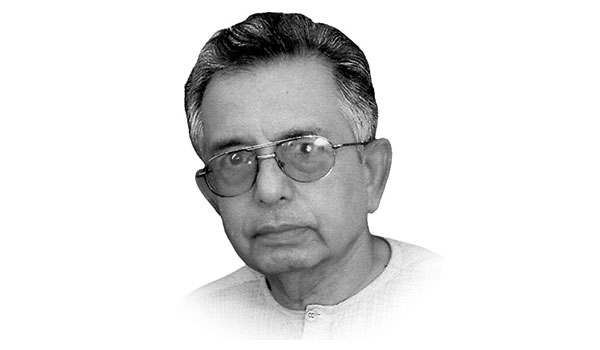A dream gone sour
The Charter of democracy, signed by former prime ministers Benazir Bhutto of Pakistan Peoples Party and Mian Muhammad Nawaz Sharif of PML-N, had paved the way for a fair level of cooperation between the former bitter rivals.
And it was indeed this cooperation which had enabled passing of 18th Amendment to the Constitution that required a minimum of two-third majority in both houses.
But while the devolution addressed, the grievances of the provinces’ rulers, selective implementation of the 18th Amendment left many problems unaddressed while over-devolution created some new ones.
Like for example, the 18th Amendment to the Constitution had made it mandatory for the provincial governments to create empowered, third-tier local governments, with appropriate powers and financial resources to provide services to the masses at grass roots level.
However, almost all provinces reneged on this through various means like creating dummy local government setups while keeping the powers and financial resources under provincial governments’ control.
And it was in this environment of doom and gloom that Imran Khan – who claims more than two decades’ struggle in politics – finally hit success in the Khyber-Pakhtunkhwa province where he formed his government.
And happy with the performance of his political party Pakistan Tehreek-e-Insaf and going against their tradition of not giving any government a second chance, K-P voters elected PTI to rule for a second time.
Of course, the usual power-brokers, seeing in him an honest man with plenty of promise, assisted him substantially.
And of course, the resourceful Jahangir Tareen and Aleem Khan also helped him a lot Fed up with the alleged corruption of Sharifs and Zardaris, the vast majority of Pakistanis welcomed Imran Khan’s arrival at the political scene, expecting him to prove a breath of fresh air.
Moreover, terribly disappointed masses also saw in Imran Khan a saviour and warmly welcomed him.
Of course, the masses were driven more by their perceptions about Imran Khan, seeing in him a man who had seen success, fame, relative wealth, and his services in establishing welfare organizations in the field of healthcare and education.
They expected, and not unreasonably, that if such a person entered politics, his sole objective would be to serve and help people.
However, as personality traits of Imran Khan got revealed through his conduct, there were some raised eyebrows, with the situation worsening with time.
And now, we have reached a situation where very many of Imran Khan’s former supporters stand thoroughly disillusioned.
Also, parting of ways by Jahangeer Tareen proved a big setback. However, the die-hard supporters of Imran Khan, and especially his overseas supporters, remain glued to him.
They absolve him of all responsibility for his failure and place the entire blame on the corrupt system, which they accuse of placing hurdles in the way of Imran Khan and thus not letting him succeed.
And though there may be some element of truth in this accusation , it is definitely not the whole truth.
Occasionally, even Imran Khan has admitted his mistakes though by and large, he also holds himself blameless.
One big shortcoming of Imran Khan was that unlike most of us, he did not go through the process of career progression which teaches us how to interact with our colleagues, juniors and seniors and which also gives us time and opportunity to grow, develop and prepare for the next senior position, and doing it all along as a continuing process.
Whether captaining the cricket team or heading the charitable organizations, he was the ultimate boss who made his decisions independently.
And it was the same when he entered politics where, despite having no prior experience, he started with the top position.
Furthermore, he entered politics at a rather late stage in life when habits firm up and become second nature, with little possibility of changing them.
Another problem is that Imran Khan places himself on too high a pedestal from where he can only look down upon others, and thus fails to give due respect to his associates and to treat others with at least a minimum level of decency even when circumstances necessitate parting ways with them.
Imran Khan seems to lack capacity to develop good relationship even with his senior associates and likes to remain bossy, and this inhibits development of comradery within his top team.
which enables open discussion within the group on important issues, thus helping make sound decisions.
Another stumbling block for him proved to the appointment of Usman Buzdar as the chief minister of Punjab which hosts more than half of the total Pakistani population and acts as a king-maker or breaker.
Moreover, despite complaints about bad governance and worse, he refused to change him despite complaints even from senior party members.
Eventually, he removed him in the fourth year but only when his own survival also became doubtful. However, it was too little, and too late because the real damage had already been done.
And the biggest blunder would be to quit the National Assembly en masse, thus losing the distinction of being the largest party in the Assembly, an achievement made possible after decades of struggle and with special help which would not be forthcoming in future.
And doing this in the hope of forcing General Elections, and returning with a two-third majority is nothing but daydreaming; in fact a political suicide.
With ECP very near to concluding the foreign-funding case against PTI, and opposition parties giving wide publicity to it and to other misdeeds of the government – real or imagined – that further erode the credibility of PTI, Imran Khan’s comback seems most unlikely.
And what is worse is that for this ouster of PTI from politics, Imran Khan would have only himself to blame.
— The writer is senior political analyst based in Karachi.










